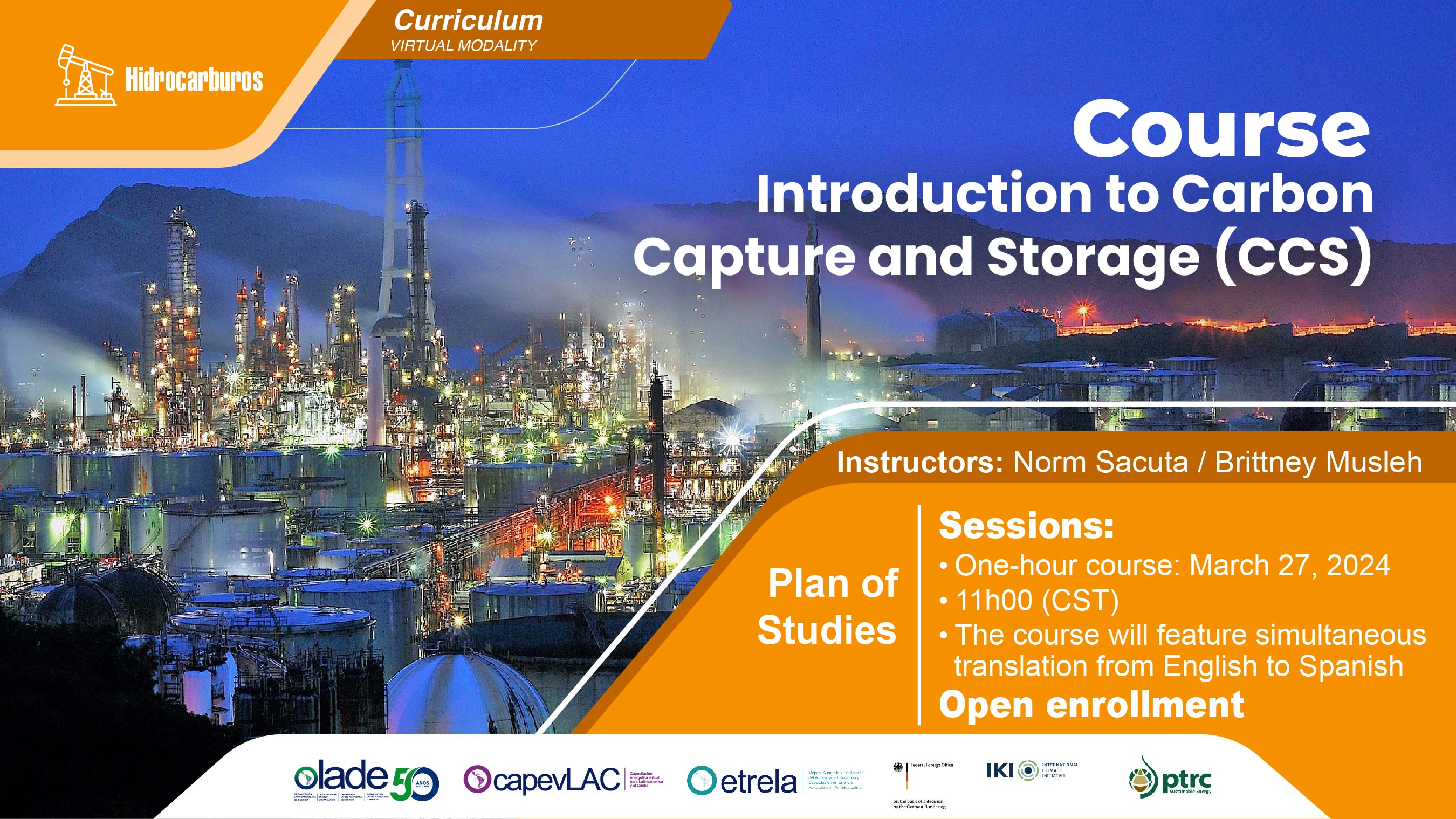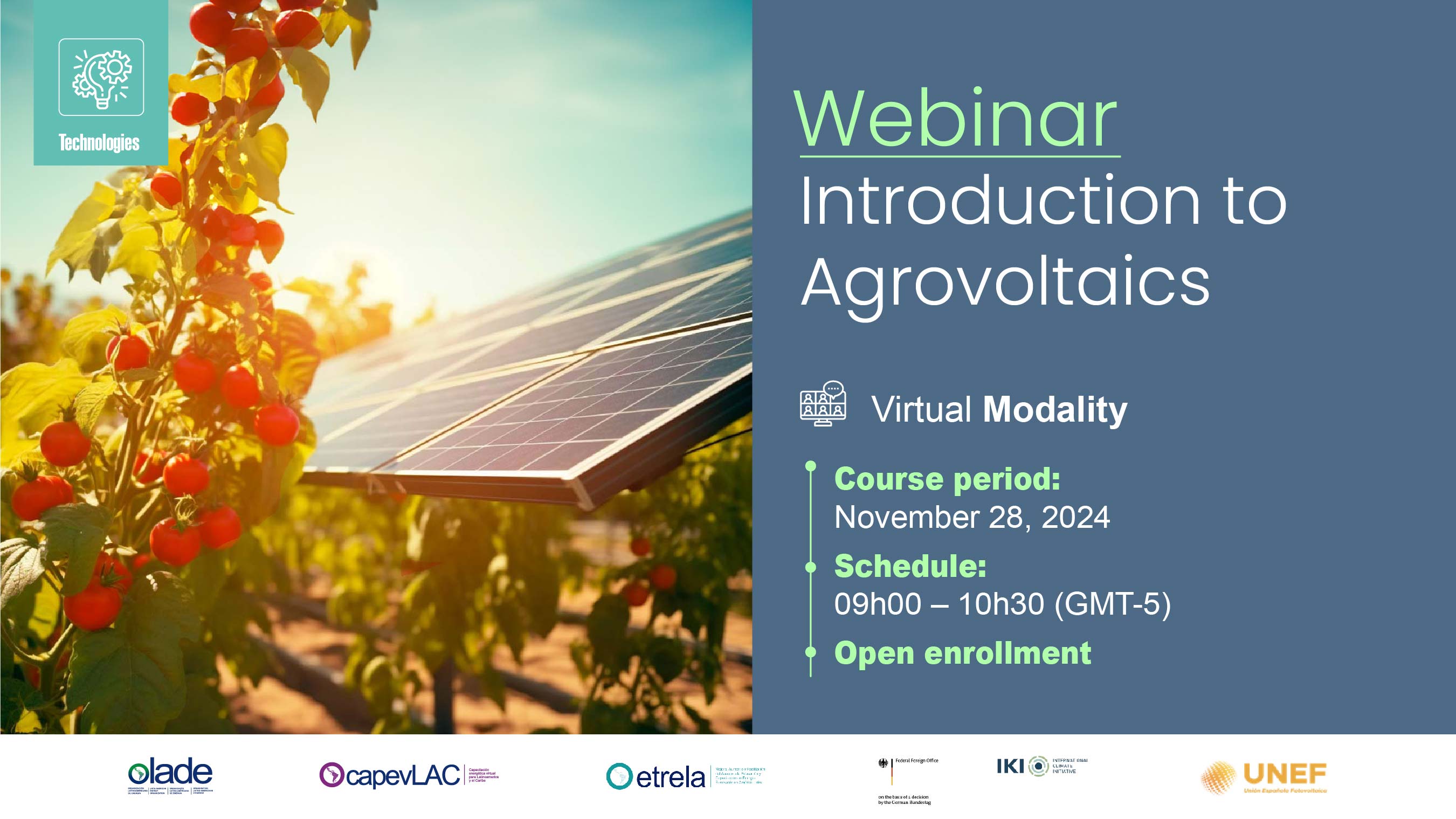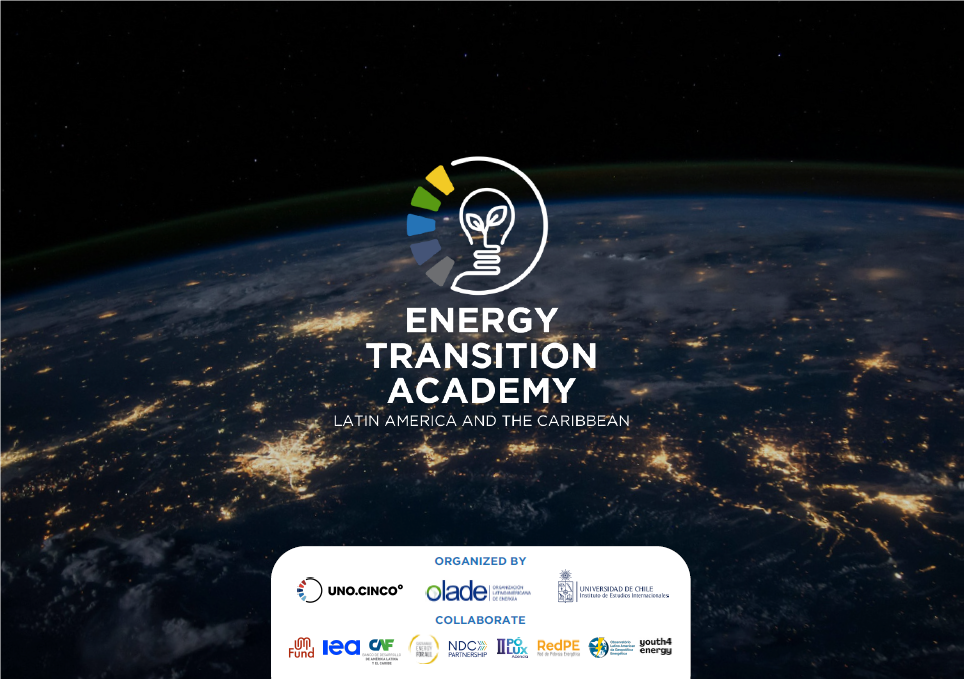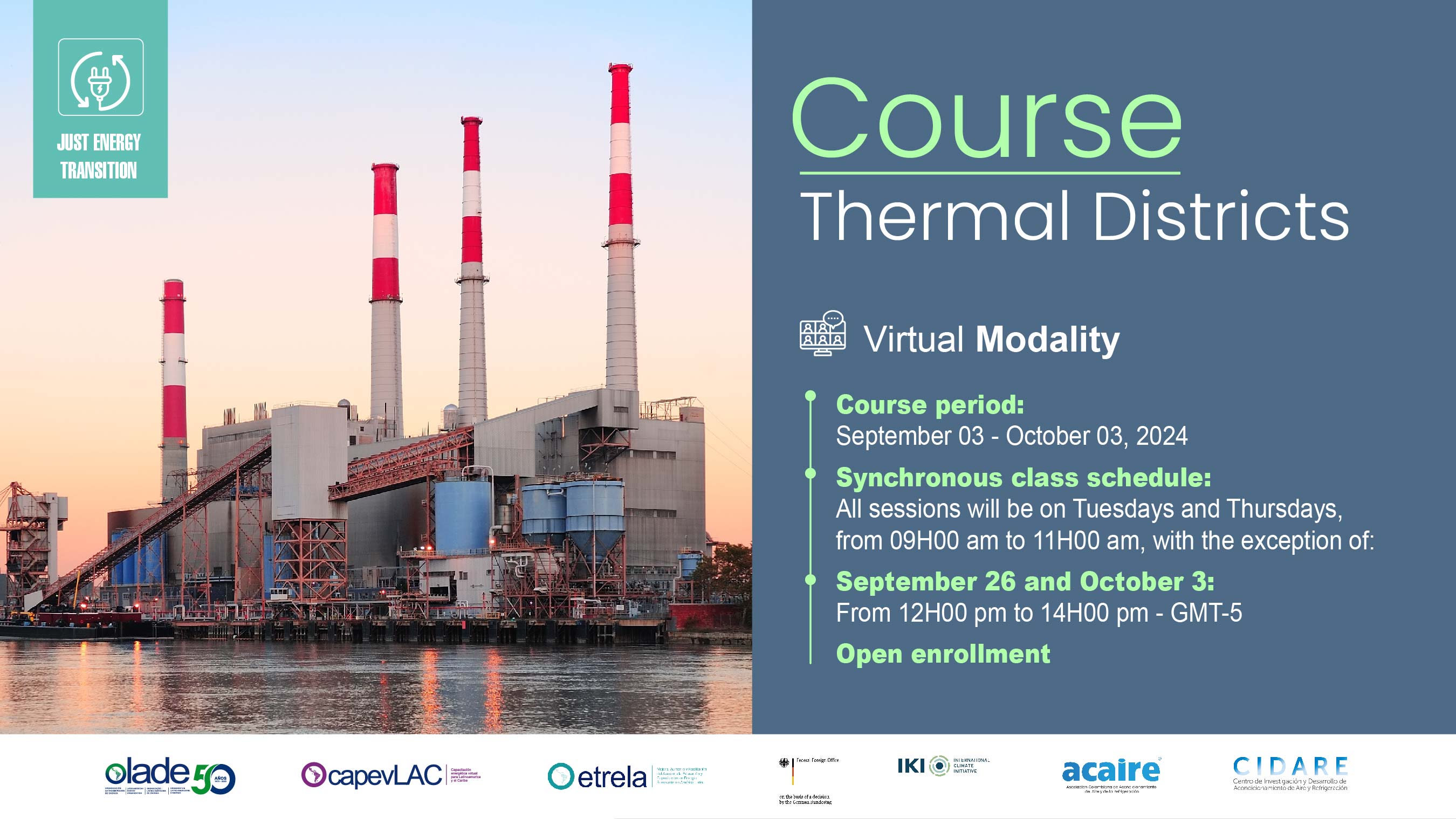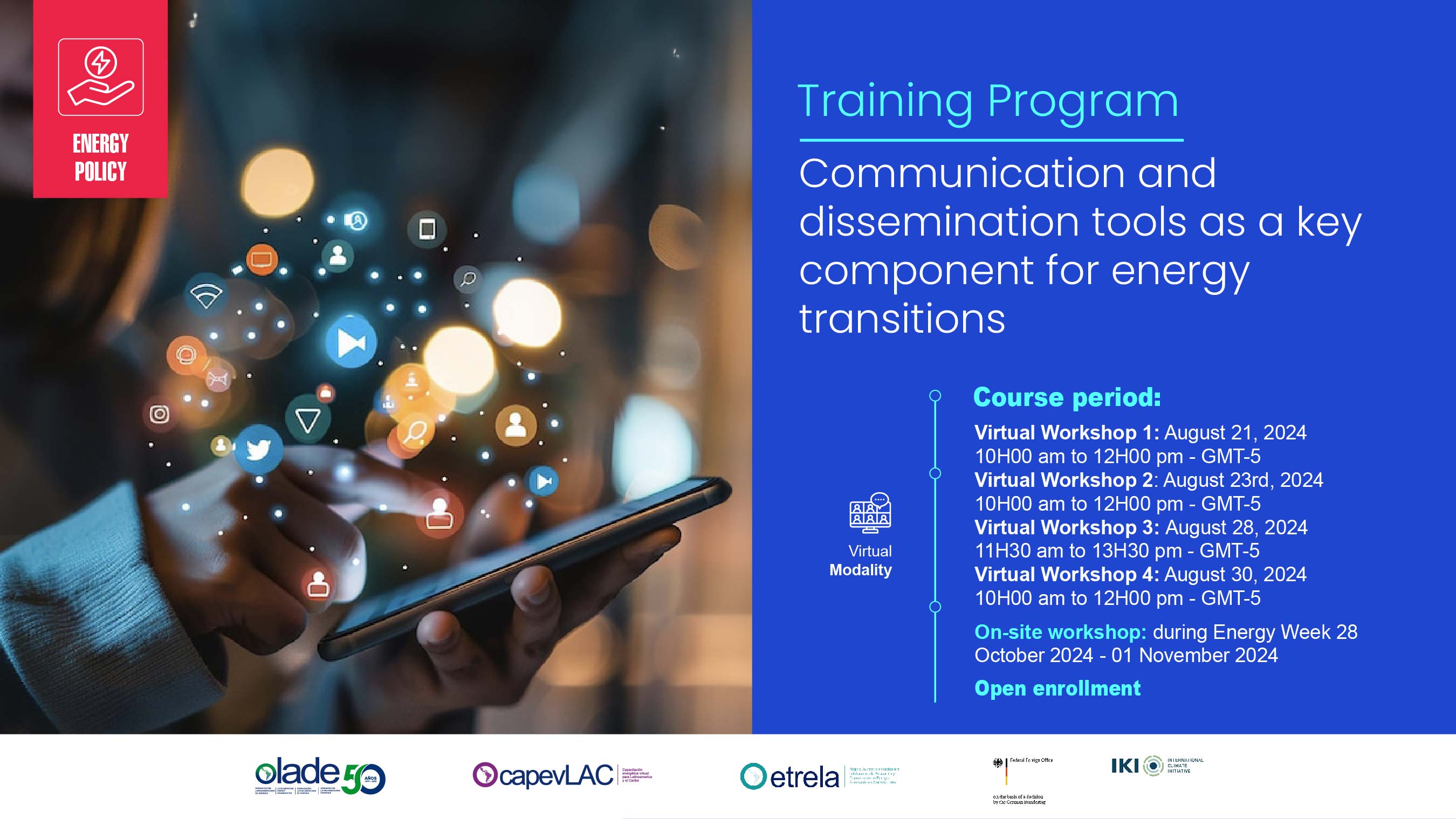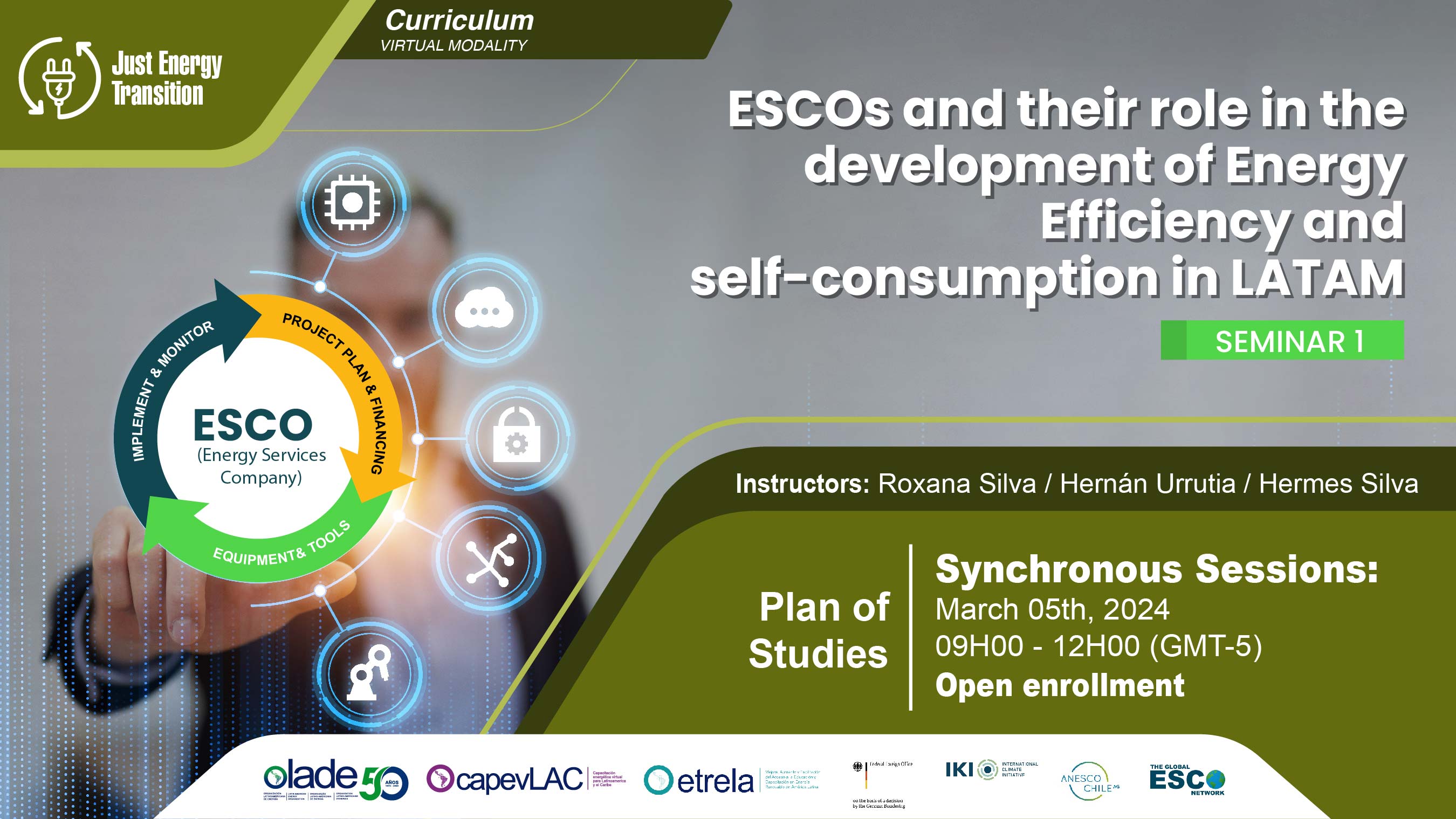- Introduction
Carbon capture and storage (CCS) is a crucial technology for Latin America and the Caribbean (LAC) in their fight against climate change. This region faces significant challenges due to its reliance on fossil fuels and the need to reduce greenhouse gas emissions. CCS offers a promising solution by capturing the CO₂ emitted by industries such as energy and mining, and securely storing it underground. By implementing CCS, the region can move toward a more sustainable economy and fulfill its international climate commitments.
Furthermore, CCS has the potential to stimulate the economy and create jobs in LAC. By investing in capture and storage technologies, countries can diversify their energy mix, reduce dependence on fossil fuels, and promote innovation. This will not only contribute to climate change mitigation but also to the region’s economic and social development.
- Content
This one-hour course on CCS, participants would delve into the fundamental concepts and practical applications of this critical technology. The course would cover topics such as the capture methods for CO₂ emissions, including post-combustion, pre-combustion, and oxy-fuel capture. Additionally, participants would explore the storage techniques, including geological storage in depleted oil and gas reservoirs, saline aquifers, and enhanced oil recovery sites. Discussions would also touch upon the economic and environmental implications of CCS, its role in mitigating climate change, and case studies from various regions. Overall, the course aims to equip learners with a comprehensive understanding of CCS and its significance in transitioning toward a more sustainable energy future.
- Objective
Provide an introductory overview of the CCS technology and its potential applications in the energy sector.
- Expected outcomes from the course
Participants would gain the following outcomes:
- Understanding of CCS Fundamentals: Participants will grasp the core concepts of CCS, including the capture, transportation, and secure storage of CO₂ They will learn about different capture methods (post-combustion, pre-combustion, and oxy-fuel) and storage techniques (geological storage, saline aquifers, and enhanced oil recovery).
- Awareness of Economic and Environmental Implications: Learners will explore the economic viability of CCS projects, considering costs, benefits, and potential revenue streams. Additionally, they will discuss the environmental impact of CCS, its role in mitigating climate change, and the importance of regulatory frameworks.
- Case Studies and Real-World Applications: The course will showcase practical examples from Saskatchewan: Weyburn-Midale, and Boundary Dam. Participants will gain insights into how CCS is being integrated into energy systems globally.
- Participant profile
People working in the energy and environment sectors from government, industry, academia, and NGOs.
- Registration
Participants must register at: https://capevlac.olade.org/registro/
Webpage of the course: LINK https://capevlac.olade.org/en/courses/carbon-capture-and-storage-ccs/
| This course is open to public and free of charge.
The current curriculum is freely accessible and incurs no cost for the Member Countries of OLADE as it is carried out within the framework of the ETRELA project “Improving, Increasing and Facilitating Access to Education and Training in Renewable Energies in Latin America”, financed by the International Climate Initiative (IKI) of the Government of Germany, and in cooperation with the Petroleum Technology Research Centre (PTRC). |
- Training methodology
The content of this course will be hosted at https://capevlac.olade.org/
Each registered participant can access with their ID and password provided at the time of registration.
The course will feature simultaneous translation from English to Spanish.
- Intellectual Property
All material provided in the course must be used exclusively by the registered person.
For other uses, the participant must request permission from OLADE.
- Course content
This introductory one-hour course covers a broad range of topics to give participants a strong informational grounding in what CCS is, its component technologies, and its potential benefits in reducing emissions.
Main topics will include:
- Overview of capture technologies
- Overview of transport options
- The role of CCS in reaching net-zero emissions
- Risk assessment and storage site characterization
- CO2-enhanced oil recovery
- Measuring, monitoring and verifying CO2 storage
- Public and Stakeholder Engagement
- Closure and post closure of CO2 storage sites
Course Features
- Lectures 2
- Quiz 0
- Duration 10 weeks
- Skill level All levels
- Language English
- Students 4
- Certificate No
- Assessments Yes
Curriculum
- 1 Section
- 2 Lessons
- 10 Weeks

